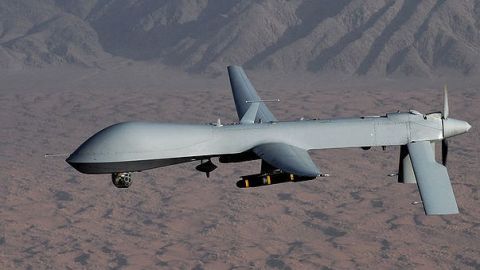When Drones Kill Friendlies

It’s been a bad week for drones. First, Pakistan demanded the U.S. halt drone attacks aimed at militants in the country’s northwest region. Then came the news that the military is investigating the deaths of two servicemen killed in Afghanistan, which may have been the first-ever U.S. casualties due to drone warfare.
Apparently, in the fog of war, drone operators could not distinguish U.S. troops from Taliban fighters and ordered a Hellfire missile airstrike on them from a Predator Drone.
This high tech weapon allows the U.S. military an unprecedented ability to track and fire on enemy combatants. But as The Los Angeles Times has reported in great detail, sometimes drone operators fail in the most rudimentary tasks, such as distinguishing friend from foe.
It is hard to imagine the strains of such a job. P.W. Singer, Senior Fellow at the Brookings Institute, explains the psychology of a drone operator in Nevada who spends his nights at home with his family and his days eliminating enemy targets in Iraq:





